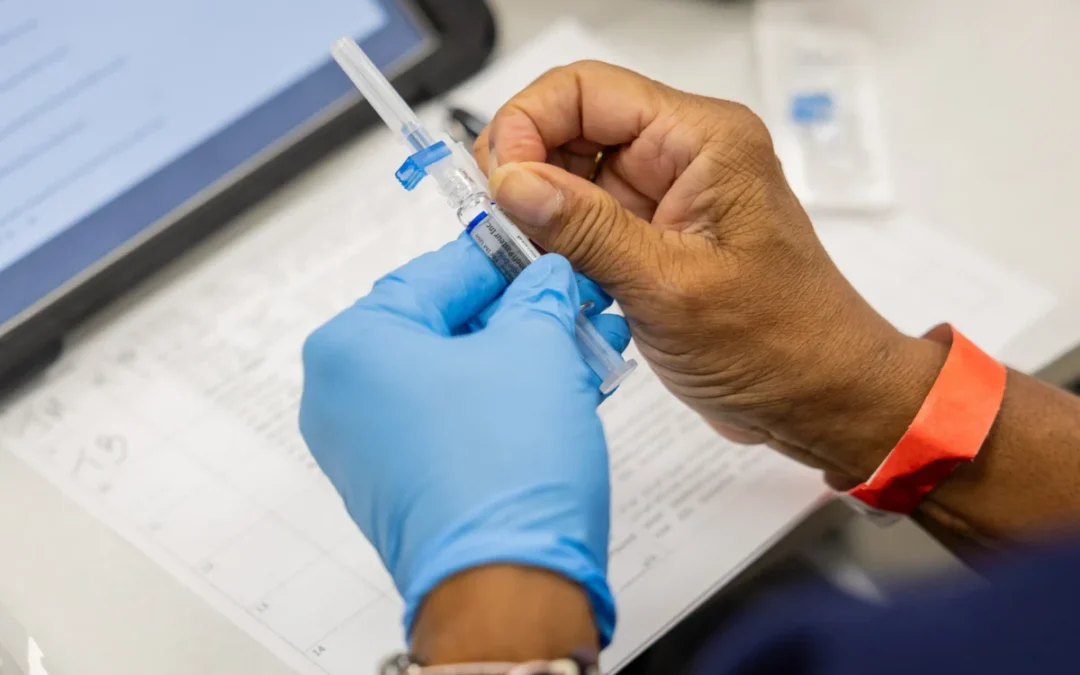
Several bills advancing in the state Legislature are designed to bolster access to health care in Michigan by creating a new, state-managed health insurance marketplace.
MICHIGAN—Six bills passed last week by the state Senate aim to transition Michigan away from the federally managed health insurance marketplace to a new, state-based exchange that could lower costs and provide greater flexibility to meet the health care needs of Michiganders.
In a statement, lead sponsor Sen. Kevin Hertel (D-St. Clair Shores) said that ditching the federal platform in favor of a state-managed health insurance exchange would lead to a more accessible and affordable healthcare system that “works for all Michiganders.”
“Here in Michigan, we have a strong track record of safeguarding residents’ healthcare,” Hertel said. “Under this plan, we will have more tools at our disposal to tailor the marketplace to fit local healthcare needs while reducing costs, improving efficiency, and boosting access to care.”
The package of bills—Senate Bills 633-638—aims to create a new, state-based health insurance exchange for individuals and small businesses to begin purchasing plans in 2026.
The legislation passed last week in the Senate and now heads to the House for further review.
In 2010, the Affordable Care Act created a health insurance marketplace where Americans could compare plans and choose an option that works best for them and their family—often with subsidies to help reduce the cost. Individual states are able to choose between managing their own insurance exchange or using the federally managed platform. Michigan chose the latter.
In turn, the Centers for Medicare and Medicaid Services has been imposing a user fee on Michigan insurers and collecting a percentage of premiums from plans sold in the state in order to sustain operational and administrative costs associated with running the federal marketplace.
In a release, state lawmakers said that transitioning to a state-based exchange would allow the revenue generated by the exchange to stay in Michigan rather than being returned to the federal government—and ultimately provide the state with more “flexibility, affordability, and autonomy” to take a “more tailored” approach to meet the healthcare insurance needs of all Michiganders.
Co-sponsoring state Sen. Sylvia Santana (D-Detroit) said the move would also bolster efforts to reach underserved communities, lower insurance rates, curb administrative costs, and create a more efficient insurance marketplace.
“By keeping the funds within our state, we can reinvest in our communities, improve public health outreach, and ensure that everyone has the opportunity to receive quality healthcare, regardless of their zip code or income level,” Santana said in a statement last week.
State Sen. Darrin Camilleri (D-Trenton) said it’s “about taking control of our healthcare future.”
“This transition will empower us to design a more efficient and accessible healthcare system that prioritizes the needs of Michiganders,” he said. “It’s a critical move to ensure that everyone from our urban centers to our rural areas has access to the coverage and care they need.”
During the 2024 open enrollment period, state data shows that 418,000 Michiganders bought health insurance through the federal marketplace—marking a 30% increase from the previous year and the highest health insurance enrollment numbers in the state’s history.
The number of states choosing to operate their own exchange is also increasing. At least 18 states now run their own state-based exchanges, with six having launched in the last four years.
State Sen. Veronica Klinefelt (D-Eastpointe) said the most important part of the state legislation would be the ability for Michigan to “take a custom approach” to reach uninsured residents.
State Sen. Erika Geiss (D-Taylor) said the shift would also boost equity and inclusivity.
“The certification of these plans will help improve health outcomes by providing tailored, localized options for residents leading to better coverage that meets the needs of the community while promoting equity and inclusivity in healthcare services,” Geiss said in a statement.
READ MORE: Record 1.4M Michiganders have coverage through Affordable Care Act
For the latest Michigan news, follow The ‘Gander on Twitter.
Follow Political Correspondent Kyle Kaminski here.
Support Our Cause
Thank you for taking the time to read our work. Before you go, we hope you'll consider supporting our values-driven journalism, which has always strived to make clear what's really at stake for Michiganders and our future.
Since day one, our goal here at The 'Gander has always been to empower people across the state with fact-based news and information. We believe that when people are armed with knowledge about what's happening in their local, state, and federal governments—including who is working on their behalf and who is actively trying to block efforts aimed at improving the daily lives of Michigan families—they will be inspired to become civically engaged.


It’s almost flu season. Should you still get a shot, and will insurance cover it?
Madison Czopek, PolitiFact August 18, 2025 For parents of school-aged children, the fall to-do list can seem ever-growing. Buy school supplies. Fill...

Opinion: Health care is at risk as Grad PLUS loans face the chopping block
The ‘One Big, Beautiful Bill Act’ strips critical funding from medical students and threatens care in rural and underserved communities. We never...

Macomb County households will start losing money this year under Trump’s new spending law. Here’s how much—and who let it happen
Families in Michigan’s 10th Congressional District will shoulder over $500 million in lost funding, while billionaires cash in. In the neighborhoods...

Federal cuts will hit the Flint region hardest. Here’s how much money people there stand to lose—and who tried to stop it
“Everybody will see daily costs go up, like health care, utility bills, and food to help Elon Musk and Jeff Bezos make more money.” Residents in...

‘Big beautiful bill’ will end Medicaid for people in Macomb and Oakland counties this year. Here’s how many will lose it—and who’s responsible
The representative who voted to take away health care from nearly 20,000 Michiganders in his district also plans to run for governor. President...





